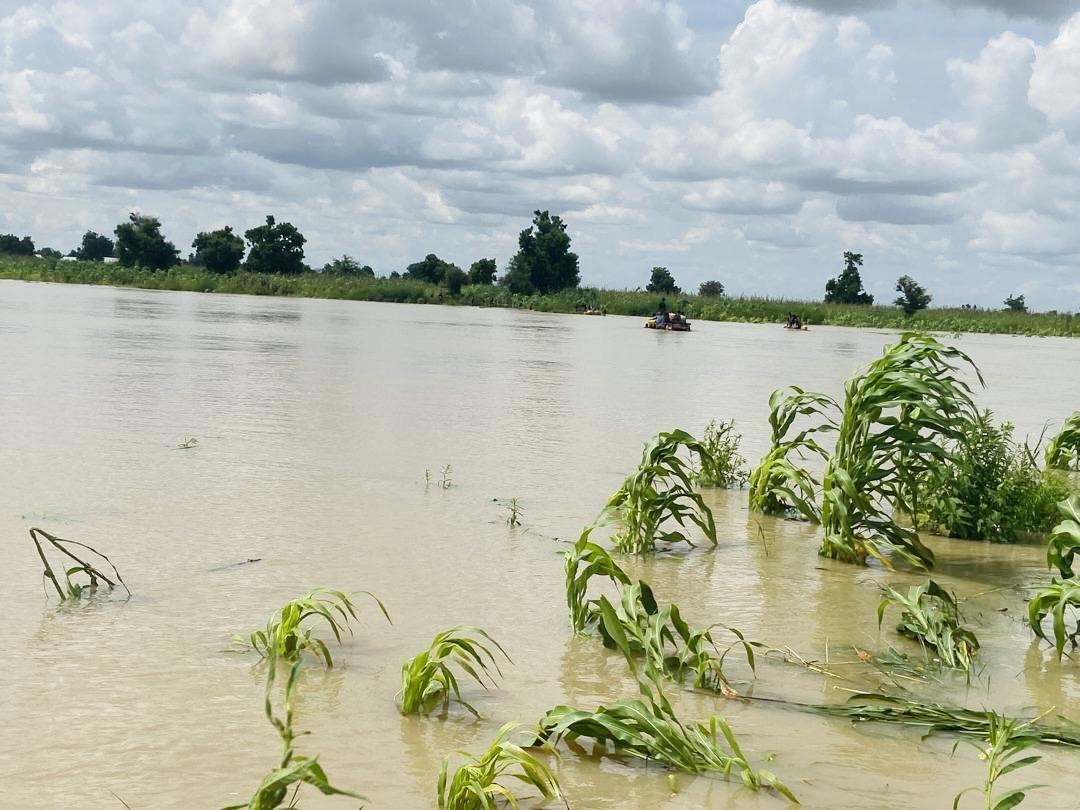580
By Tracy Moses
Three communities devastated by last year’s floods in Bauchi, Gombe, and Yobe States are witnessing a remarkable turnaround, thanks to a recovery and resilience initiative led by Rural Health Mission Nigeria (RHMN).
RHMN, a non-profit organization committed to improving health outcomes and the well-being of rural populations, focuses on humanitarian interventions, maternal and child health, health system strengthening, and public health awareness all aimed at ensuring better healthcare access in Nigeria’s rural areas.
Speaking during a media briefing in Gombe on Saturday, April 26, 2026, the Chief Executive Officer (CEO) of RHMN, Mohammed Sadiq disclosed that the project, which began in February 2025, is currently being implemented in Maikaho (Gombe State), Gamawa (Bauchi State), and Nengere (Yobe State). The intervention, he said, is set to run for seven months.
According to Sadiq, the project focuses on renovating flood-damaged health facilities, providing clean water, and installing solar panels to guarantee uninterrupted healthcare services. He explained that the target communities were selected based on their heightened vulnerability to flooding.
“Health facilities are the backbone of any community. In the aftermath of flooding, when water sources are often contaminated, the risk of disease outbreaks like cholera escalates. Ensuring functional healthcare infrastructure is vital for community resilience,” Sadiq emphasized.
Similar approaches were adopted after Nigeria’s 2012 nationwide floods, when organizations like the Nigerian Red Cross and Médecins Sans Frontières (MSF) deployed mobile clinics and rehabilitated water systems to stave off disease outbreaks in affected regions.
As part of RHMN’s comprehensive intervention, 500 vulnerable individuals across the three communities are receiving livelihood support. Beneficiaries include pregnant women, persons with disabilities (PWDs), elderly individuals above 60 years without stable income, and local farmers.
Sadiq revealed that essential birthing kits including delivery packs, gloves, and blades had already been distributed to 50 pregnant women, alongside cash support. “Some women were able to invest their cash assistance and even made profits before delivering their babies,” he added.
In a bid to foster inclusivity, RHMN also empowered 15 persons with disabilities and 15 elderly individuals in each community with financial support to bolster their livelihoods.
To strengthen the agricultural sector, 50 farmers per community underwent a four-week intensive training on sustainable farming practices. They received critical farm inputs including chicks, goats, rabbits, fertilizers, pesticides, sprayers, and seeds in preparation for the ongoing rainy season.
“We commenced cash disbursement in February. Now, as the rains have arrived, we are at the final stage of distributing agricultural support packages,” Sadiq explained.
He further noted that RHMN has maintained a continuous presence in these rural communities for the past three years through its volunteer networks, whose regular field reports enabled the organization to assess flood impacts firsthand and secure funding from the Centre for Disaster Philanthropy.
Emphasizing sustainability, Sadiq said the organization is working closely with Community Development Committees (CDCs) and consultants to monitor progress and ensure that the benefits of the intervention endure beyond the project’s initial timeline.
Previous post-disaster recovery efforts, such as the 2018 interventions in Niger and Benue States, have shown that community-led models can significantly strengthen recovery, demonstrating the importance of local ownership in sustaining humanitarian achievements.



